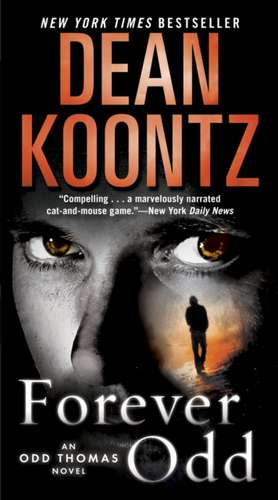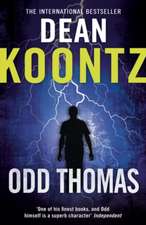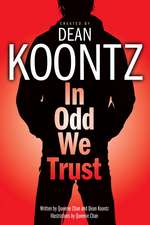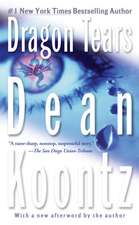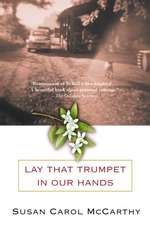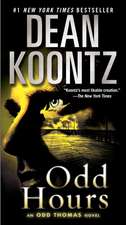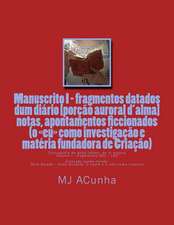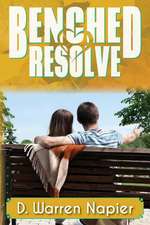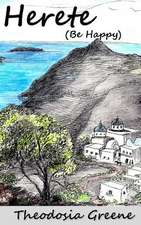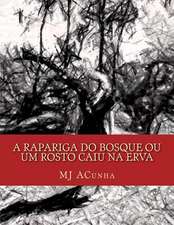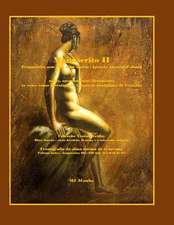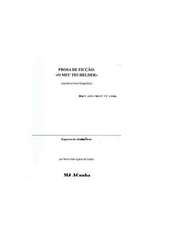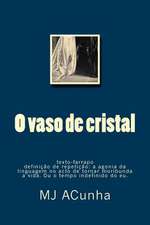Forever Odd: Odd Thomas Novels
Autor Dean R. Koontzen Limba Engleză Paperback – 31 mar 2012
I see dead people. But then, by God, I do something about it. Odd Thomas never asked for his special ability. He’s just an ordinary guy trying to live a quiet life in the small desert town of Pico Mundo. Yet he feels an obligation to do right by his otherworldly confidants, and that’s why he’s won hearts on both sides of the divide between life and death. But when a childhood friend disappears, Odd discovers something worse than a dead body and embarks on a heart-stopping battle of will and wits with an enemy of exceptional cunning. In the hours to come there can be no innocent bystanders, and every sacrifice can tip the balance between despair and hope.
You’re invited on an unforgettable journey through a world of terror and transcendence to wonders beyond imagining. And you can have no better guide than Odd Thomas.
| Toate formatele și edițiile | Preț | Express |
|---|---|---|
| Paperback (2) | 57.71 lei 3-5 săpt. | |
| Bantam – 31 mar 2012 | 57.71 lei 3-5 săpt. | |
| HarperCollins Publishers – 13 mar 2013 | 70.54 lei 3-5 săpt. | +12.48 lei 10-14 zile |
Preț: 57.71 lei
Nou
Puncte Express: 87
Preț estimativ în valută:
11.04€ • 11.56$ • 9.14£
11.04€ • 11.56$ • 9.14£
Carte disponibilă
Livrare economică 15-29 martie
Preluare comenzi: 021 569.72.76
Specificații
ISBN-13: 9780345533319
ISBN-10: 0345533313
Pagini: 383
Dimensiuni: 104 x 188 x 28 mm
Greutate: 0.23 kg
Editura: Bantam
Seria Odd Thomas Novels
ISBN-10: 0345533313
Pagini: 383
Dimensiuni: 104 x 188 x 28 mm
Greutate: 0.23 kg
Editura: Bantam
Seria Odd Thomas Novels
Notă biografică
Dean Koontz, the author of many #1 New York Times bestsellers, lives in Southern California with his wife, Gerda, their golden retriever, Anna, and the enduring spirit of their golden, Trixie.
Extras
Chapter One
WAKING, I HEARD A WARM WIND STRUMMING THE LOOSE screen at the open window, and I thought Stormy, but it was not.
The desert air smelled faintly of roses, which were not in bloom, and of dust, which in the Mojave flourishes twelve months of the year.
Precipitation falls on the town of Pico Mundo only during our brief winter. This mild February night was not, however, sweetened by the scent of rain. I hoped to hear the fading rumble of thunder. If a peal had awakened me, it must have been thunder in a dream.
Holding my breath, I lay listening to the silence, and felt the silence listening to me. The nightstand clock painted glowing numbers on the gloom—2:41 A.M.
For a moment I considered remaining in bed. But these days I do not sleep as well as I did when I was young. I am twenty-one and much older than when I was twenty.
Certain that I had company, expecting to find two Elvises watching over me, one with a cocky smile and one with sad concern, I sat up and switched on the lamp. A single Elvis stood in a corner: a life-size cardboard figure that had been part of a theater-lobby display for Blue Hawaii. In a Hawaiian shirt and a lei, he looked self-confident and happy.
Back in 1961, he'd had much to be happy about. Blue Hawaii was a hit film, and the album went to number one. He had six gold records that year, including "Can't Help Falling in Love," and he was falling in love with Priscilla Beaulieu.
Less happily, at the insistence of his manager, Tom Parker, he had turned down the lead in West Side Story in favor of mediocre movie fare like Follow That Dream. Gladys Presley, his beloved mother, had been dead three years, and still he felt the loss of her, acutely. Only twenty-six, he'd begun to have weight problems.
Cardboard Elvis smiles eternally, forever young, incapable of error or regret, untouched by grief, a stranger to despair.
I envy him. There is no cardboard replica of me as I once was and as I can never be again.
The lamplight revealed another presence, as patient as he was desperate. Evidently he had been watching me sleep, waiting for me to wake.
I said, "Hello, Dr. Jessup."
Dr. Wilbur Jessup was incapable of a response. Anguish flooded his face. His eyes were desolate pools; all hope had drowned in those lonely depths.
"I'm sorry to see you here," I said.
He made fists of his hands, not with the intention of striking anything, but as an expression of frustration. He pressed his fists to his chest.
Dr. Jessup had never previously visited my apartment; and I knew in my heart that he no longer belonged in Pico Mundo. But I clung to denial, and I spoke to him again as I got out of bed.
"Did I leave the door unlocked?"
He shook his head. Tears blurred his eyes, but he did not wail or even whimper. Fetching a pair of jeans from the closet, slipping into them, I said, "I've been forgetful lately."
He opened his fists and stared at his palms. His hands trembled. He buried his face in them.
"There's so much I'd like to forget," I continued as I pulled on socks and shoes, "but only the small stuff slips my mind-like where I left the keys, whether I locked the door, that I'm out of milk. . . ."
Dr. Jessup, a radiologist at County General Hospital, was a gentle man, and quiet, although he had never before been this quiet. Because I had not worn a T-shirt to bed, I plucked a white one from a drawer. I have a few black T-shirts, but mostly white. In addition to a selection of blue jeans, I have two pair of white chinos.
This apartment provides only a small closet. Half of it is empty. So are the bottom drawers of my dresser.
I do not own a suit. Or a tie. Or shoes that need to be shined.
For cool weather, I own two crew-neck sweaters.
Once I bought a sweater vest. Temporary insanity. Realizing that I had introduced an unthinkable level of complexity to my wardrobe, I returned it to the store the next day.
My four-hundred-pound friend and mentor, P. Oswald Boone, has warned me that my sartorial style represents a serious threat to the apparel industry.
I've noted more than once that the articles in Ozzie's wardrobe are of such enormous dimensions that he keeps in business those fabric mills I might otherwise put in jeopardy.
Barefoot, Dr. Jessup wore cotton pajamas. They were wrinkled from the rigors of restless sleep.
"Sir, I wish you'd say something," I told him. "I really wish you would."
Instead of obliging me, the radiologist lowered his hands from his face, turned, and walked out of the bedroom.
I glanced at the wall above the bed. Framed behind glass is a card from a carnival fortune-telling machine. It promises YOU ARE DESTINED TO BE TOGETHER FOREVER.
Each morning, I begin my day by reading those seven words. Each night, I read them again, sometimes more than once, before sleep, if sleep will come to me.
I am sustained by the certainty that life has meaning. As does death.
From a nightstand, I retrieved my cell phone. The first number on speed dial is the office of Wyatt Porter, chief of the Pico Mundo Police Department. The second is his home number. The third is his cell phone.
More likely than not, I would be calling Chief Porter, one place or another, before dawn.
In the living room, I turned on a light and discovered that Dr. Jessup had been standing in the dark, among the thrift-shop treasures with which the place is furnished.
When I went to the front door and opened it, he did not follow.
Although he had sought my assistance, he couldn't find the courage for what lay ahead.
In the rubescent light from an old bronze lamp with a beaded shade, the eclectic decor-Stickley-style armchairs, plump Victorian footstools, Maxfield Parrish prints, carnival-glass vases-evidently appealed to him.
"No offense," I said, "but you don't belong here, sir." Dr. Jessup silently regarded me with what might have been supplication. "This place is filled to the brim with the past. There's room for Elvis and me, and memories, but not for anyone new."
I stepped into the public hall and pulled the door shut.
My apartment is one of two on the first floor of a converted Victorian house. Once a rambling single-family home, the place still offers considerable charm. For years I lived in one rented room above a garage. My bed had been just a few steps from my refrigerator. Life was simpler then, and the future clear. I traded that place for this not because I needed more space, but because my heart is here now, and forever.
The front door of the house featured an oval of leaded glass. The night beyond looked sharply beveled and organized into a pattern that anyone could understand.
When I stepped onto the porch, this night proved to be like all others: deep, mysterious, trembling with the potential for chaos. From porch steps to flagstone path, to public sidewalk, I looked around for Dr. Jessup but didn't see him. In the high desert, which rises far east beyond Pico Mundo, winter can be chilly, while our low-desert nights remain mild even in February. The curbside Indian laurels sighed and whispered in the balmy wind, and moths soared to street lamps.
The surrounding houses were as quiet as their windows were dark. No dogs barked. No owls hooted.
No pedestrians were out, no traffic on the streets. The town looked as if the Rapture had occurred, as if only I had been left behind to endure the reign of Hell on Earth.
By the time I reached the corner, Dr. Jessup rejoined me. His pajamas and the lateness of the hour suggested that he had come to my apartment from his home on Jacaranda Way, five blocks north in a better neighborhood than mine. Now he led me in that direction.
He could fly, but he plodded. I ran, drawing ahead of him.
Although I dreaded what I would find no less than he might have dreaded revealing it to me, I wanted to get to it quickly. As far as I knew, a life might still be in jeopardy.
Halfway there, I realized that I could have taken the Chevy. For most of my driving life, having no car of my own, I borrowed from friends as needed. The previous autumn, I had inherited a 1980 Chevrolet Camaro Berlinetta Coupe.
Often I still act as though I have no wheels. Owning a few thousand pounds of vehicle oppresses me when I think about it too much. Because I try not to think about it, I sometimes forget I have it.
Under the cratered face of the blind moon, I ran.
On Jacaranda Way, the Jessup residence is a white-brick Georgian with elegant ornamentation. It is flanked by a delightful American Victorian with so many decorative moldings that it resembles a wedding cake, and by a house that is baroque in all the wrong ways.
None of these architectural styles seems right for the desert, shaded by palm trees, brightened by climbing bougainvillea. Our town was founded in 1900 by newcomers from the East Coast, who fled the harsh winters but brought with them cold-climate architecture and attitude.
Terri Stambaugh, my friend and employer, owner of the Pico Mundo Grille, tells me that this displaced architecture is better than the dreary acres of stucco and graveled roofs in many California desert towns.
I assume that she is right. I have seldom crossed the city line of Pico Mundo and have never been beyond the boundaries of Maravilla County.
My life is too full to allow either a jaunt or a journey. I don't even watch the Travel Channel.
The joys of life can be found anywhere. Far places only offer exotic ways to suffer.
Besides, the world beyond Pico Mundo is haunted by strangers, and I find it difficult enough to cope with the dead who, in life, were known to me. Upstairs and down, soft lamplight shone at some windows of the Jessup residence. Most panes were dark. By the time I reached the foot of the front-porch steps, Dr. Wilbur Jessup waited there.
The wind stirred his hair and ruffled his pajamas, although why he should be subject to the wind, I do not know. The moonlight found him, too, and shadow. The grieving radiologist needed comforting before he could summon sufficient strength to lead me into his house, where he himself no doubt lay dead, and perhaps another.
I embraced him. Only a spirit, he was invisible to everyone but me, yet he felt warm and solid.
Perhaps I see the dead affected by the weather of this world, and see them touched by light and shadow, and find them as warm as the living, not because this is the way they are but because this is the way I want them to be. Perhaps by this device, I mean to deny the power of death.
My supernatural gift might reside not in my mind but instead in my heart. The heart is an artist that paints over what profoundly disturbs it, leaving on the canvas a less dark, less sharp version of the truth.
Dr. Jessup had no substance, but he leaned heavily upon me, a weight. He shook with the sobs that he could not voice.
The dead don't talk. Perhaps they know things about death that the living are not permitted to learn from them.
In this moment, my ability to speak gave me no advantage. Words would not soothe him.
Nothing but justice could relieve his anguish. Perhaps not even justice. When he'd been alive, he had known me as Odd Thomas, a local character. I am regarded by some people-wrongly-as a hero, as an eccentric by nearly everyone.
Odd is not a nickname; it's my legal handle.
The story of my name is interesting, I suppose, but I've told it before. What it boils down to is that my parents are dysfunctional. Big-time. I believe that in life Dr. Jessup had found me intriguing, amusing, puzzling. I think he had liked me.
Only in death did he know me for what I am: a companion to the lingering dead. I see them and wish I did not. I cherish life too much to turn the dead away, however, for they deserve my compassion by virtue of having suffered this world.
When Dr. Jessup stepped back from me, he had changed. His wounds were now manifest.
He had been hit in the face with a blunt object, maybe a length of pipe or a hammer. Repeatedly. His skull was broken, his features distorted. Torn, cracked, splintered, his hands suggested that he had desperately tried to defend himself-or that he had come to the aid of someone. The only person living with him was his son, Danny.
My pity was quickly exceeded by a kind of righteous rage, which is a dangerous emotion, clouding judgment, precluding caution.
In this condition, which I do not seek, which frightens me, which comes over me as though I have been possessed, I can't turn away from what must be done. I plunge. My friends, those few who know my secrets, think my compulsion has a divine inspiration. Maybe it's just temporary insanity.
Step to step, ascending, then crossing the porch, I considered phoning Chief Wyatt Porter. I worried, however, that Danny might perish while I placed the call and waited for the authorities.
The front door stood ajar.
I glanced back and saw that Dr. Jessup preferred to haunt the yard instead of the house. He lingered in the grass.
His wounds had vanished. He appeared as he had appeared before Death had found him-and he looked scared.
Until they move on from this world, even the dead can know fear. You would think they have nothing to lose, but sometimes they are wretched with anxiety, not about what might lie Beyond, but about those whom they have left behind. I pushed the door inward. It moved as smoothly, as silently as the mechanism of a well-crafted, spring-loaded trap.
From the Hardcover edition.
WAKING, I HEARD A WARM WIND STRUMMING THE LOOSE screen at the open window, and I thought Stormy, but it was not.
The desert air smelled faintly of roses, which were not in bloom, and of dust, which in the Mojave flourishes twelve months of the year.
Precipitation falls on the town of Pico Mundo only during our brief winter. This mild February night was not, however, sweetened by the scent of rain. I hoped to hear the fading rumble of thunder. If a peal had awakened me, it must have been thunder in a dream.
Holding my breath, I lay listening to the silence, and felt the silence listening to me. The nightstand clock painted glowing numbers on the gloom—2:41 A.M.
For a moment I considered remaining in bed. But these days I do not sleep as well as I did when I was young. I am twenty-one and much older than when I was twenty.
Certain that I had company, expecting to find two Elvises watching over me, one with a cocky smile and one with sad concern, I sat up and switched on the lamp. A single Elvis stood in a corner: a life-size cardboard figure that had been part of a theater-lobby display for Blue Hawaii. In a Hawaiian shirt and a lei, he looked self-confident and happy.
Back in 1961, he'd had much to be happy about. Blue Hawaii was a hit film, and the album went to number one. He had six gold records that year, including "Can't Help Falling in Love," and he was falling in love with Priscilla Beaulieu.
Less happily, at the insistence of his manager, Tom Parker, he had turned down the lead in West Side Story in favor of mediocre movie fare like Follow That Dream. Gladys Presley, his beloved mother, had been dead three years, and still he felt the loss of her, acutely. Only twenty-six, he'd begun to have weight problems.
Cardboard Elvis smiles eternally, forever young, incapable of error or regret, untouched by grief, a stranger to despair.
I envy him. There is no cardboard replica of me as I once was and as I can never be again.
The lamplight revealed another presence, as patient as he was desperate. Evidently he had been watching me sleep, waiting for me to wake.
I said, "Hello, Dr. Jessup."
Dr. Wilbur Jessup was incapable of a response. Anguish flooded his face. His eyes were desolate pools; all hope had drowned in those lonely depths.
"I'm sorry to see you here," I said.
He made fists of his hands, not with the intention of striking anything, but as an expression of frustration. He pressed his fists to his chest.
Dr. Jessup had never previously visited my apartment; and I knew in my heart that he no longer belonged in Pico Mundo. But I clung to denial, and I spoke to him again as I got out of bed.
"Did I leave the door unlocked?"
He shook his head. Tears blurred his eyes, but he did not wail or even whimper. Fetching a pair of jeans from the closet, slipping into them, I said, "I've been forgetful lately."
He opened his fists and stared at his palms. His hands trembled. He buried his face in them.
"There's so much I'd like to forget," I continued as I pulled on socks and shoes, "but only the small stuff slips my mind-like where I left the keys, whether I locked the door, that I'm out of milk. . . ."
Dr. Jessup, a radiologist at County General Hospital, was a gentle man, and quiet, although he had never before been this quiet. Because I had not worn a T-shirt to bed, I plucked a white one from a drawer. I have a few black T-shirts, but mostly white. In addition to a selection of blue jeans, I have two pair of white chinos.
This apartment provides only a small closet. Half of it is empty. So are the bottom drawers of my dresser.
I do not own a suit. Or a tie. Or shoes that need to be shined.
For cool weather, I own two crew-neck sweaters.
Once I bought a sweater vest. Temporary insanity. Realizing that I had introduced an unthinkable level of complexity to my wardrobe, I returned it to the store the next day.
My four-hundred-pound friend and mentor, P. Oswald Boone, has warned me that my sartorial style represents a serious threat to the apparel industry.
I've noted more than once that the articles in Ozzie's wardrobe are of such enormous dimensions that he keeps in business those fabric mills I might otherwise put in jeopardy.
Barefoot, Dr. Jessup wore cotton pajamas. They were wrinkled from the rigors of restless sleep.
"Sir, I wish you'd say something," I told him. "I really wish you would."
Instead of obliging me, the radiologist lowered his hands from his face, turned, and walked out of the bedroom.
I glanced at the wall above the bed. Framed behind glass is a card from a carnival fortune-telling machine. It promises YOU ARE DESTINED TO BE TOGETHER FOREVER.
Each morning, I begin my day by reading those seven words. Each night, I read them again, sometimes more than once, before sleep, if sleep will come to me.
I am sustained by the certainty that life has meaning. As does death.
From a nightstand, I retrieved my cell phone. The first number on speed dial is the office of Wyatt Porter, chief of the Pico Mundo Police Department. The second is his home number. The third is his cell phone.
More likely than not, I would be calling Chief Porter, one place or another, before dawn.
In the living room, I turned on a light and discovered that Dr. Jessup had been standing in the dark, among the thrift-shop treasures with which the place is furnished.
When I went to the front door and opened it, he did not follow.
Although he had sought my assistance, he couldn't find the courage for what lay ahead.
In the rubescent light from an old bronze lamp with a beaded shade, the eclectic decor-Stickley-style armchairs, plump Victorian footstools, Maxfield Parrish prints, carnival-glass vases-evidently appealed to him.
"No offense," I said, "but you don't belong here, sir." Dr. Jessup silently regarded me with what might have been supplication. "This place is filled to the brim with the past. There's room for Elvis and me, and memories, but not for anyone new."
I stepped into the public hall and pulled the door shut.
My apartment is one of two on the first floor of a converted Victorian house. Once a rambling single-family home, the place still offers considerable charm. For years I lived in one rented room above a garage. My bed had been just a few steps from my refrigerator. Life was simpler then, and the future clear. I traded that place for this not because I needed more space, but because my heart is here now, and forever.
The front door of the house featured an oval of leaded glass. The night beyond looked sharply beveled and organized into a pattern that anyone could understand.
When I stepped onto the porch, this night proved to be like all others: deep, mysterious, trembling with the potential for chaos. From porch steps to flagstone path, to public sidewalk, I looked around for Dr. Jessup but didn't see him. In the high desert, which rises far east beyond Pico Mundo, winter can be chilly, while our low-desert nights remain mild even in February. The curbside Indian laurels sighed and whispered in the balmy wind, and moths soared to street lamps.
The surrounding houses were as quiet as their windows were dark. No dogs barked. No owls hooted.
No pedestrians were out, no traffic on the streets. The town looked as if the Rapture had occurred, as if only I had been left behind to endure the reign of Hell on Earth.
By the time I reached the corner, Dr. Jessup rejoined me. His pajamas and the lateness of the hour suggested that he had come to my apartment from his home on Jacaranda Way, five blocks north in a better neighborhood than mine. Now he led me in that direction.
He could fly, but he plodded. I ran, drawing ahead of him.
Although I dreaded what I would find no less than he might have dreaded revealing it to me, I wanted to get to it quickly. As far as I knew, a life might still be in jeopardy.
Halfway there, I realized that I could have taken the Chevy. For most of my driving life, having no car of my own, I borrowed from friends as needed. The previous autumn, I had inherited a 1980 Chevrolet Camaro Berlinetta Coupe.
Often I still act as though I have no wheels. Owning a few thousand pounds of vehicle oppresses me when I think about it too much. Because I try not to think about it, I sometimes forget I have it.
Under the cratered face of the blind moon, I ran.
On Jacaranda Way, the Jessup residence is a white-brick Georgian with elegant ornamentation. It is flanked by a delightful American Victorian with so many decorative moldings that it resembles a wedding cake, and by a house that is baroque in all the wrong ways.
None of these architectural styles seems right for the desert, shaded by palm trees, brightened by climbing bougainvillea. Our town was founded in 1900 by newcomers from the East Coast, who fled the harsh winters but brought with them cold-climate architecture and attitude.
Terri Stambaugh, my friend and employer, owner of the Pico Mundo Grille, tells me that this displaced architecture is better than the dreary acres of stucco and graveled roofs in many California desert towns.
I assume that she is right. I have seldom crossed the city line of Pico Mundo and have never been beyond the boundaries of Maravilla County.
My life is too full to allow either a jaunt or a journey. I don't even watch the Travel Channel.
The joys of life can be found anywhere. Far places only offer exotic ways to suffer.
Besides, the world beyond Pico Mundo is haunted by strangers, and I find it difficult enough to cope with the dead who, in life, were known to me. Upstairs and down, soft lamplight shone at some windows of the Jessup residence. Most panes were dark. By the time I reached the foot of the front-porch steps, Dr. Wilbur Jessup waited there.
The wind stirred his hair and ruffled his pajamas, although why he should be subject to the wind, I do not know. The moonlight found him, too, and shadow. The grieving radiologist needed comforting before he could summon sufficient strength to lead me into his house, where he himself no doubt lay dead, and perhaps another.
I embraced him. Only a spirit, he was invisible to everyone but me, yet he felt warm and solid.
Perhaps I see the dead affected by the weather of this world, and see them touched by light and shadow, and find them as warm as the living, not because this is the way they are but because this is the way I want them to be. Perhaps by this device, I mean to deny the power of death.
My supernatural gift might reside not in my mind but instead in my heart. The heart is an artist that paints over what profoundly disturbs it, leaving on the canvas a less dark, less sharp version of the truth.
Dr. Jessup had no substance, but he leaned heavily upon me, a weight. He shook with the sobs that he could not voice.
The dead don't talk. Perhaps they know things about death that the living are not permitted to learn from them.
In this moment, my ability to speak gave me no advantage. Words would not soothe him.
Nothing but justice could relieve his anguish. Perhaps not even justice. When he'd been alive, he had known me as Odd Thomas, a local character. I am regarded by some people-wrongly-as a hero, as an eccentric by nearly everyone.
Odd is not a nickname; it's my legal handle.
The story of my name is interesting, I suppose, but I've told it before. What it boils down to is that my parents are dysfunctional. Big-time. I believe that in life Dr. Jessup had found me intriguing, amusing, puzzling. I think he had liked me.
Only in death did he know me for what I am: a companion to the lingering dead. I see them and wish I did not. I cherish life too much to turn the dead away, however, for they deserve my compassion by virtue of having suffered this world.
When Dr. Jessup stepped back from me, he had changed. His wounds were now manifest.
He had been hit in the face with a blunt object, maybe a length of pipe or a hammer. Repeatedly. His skull was broken, his features distorted. Torn, cracked, splintered, his hands suggested that he had desperately tried to defend himself-or that he had come to the aid of someone. The only person living with him was his son, Danny.
My pity was quickly exceeded by a kind of righteous rage, which is a dangerous emotion, clouding judgment, precluding caution.
In this condition, which I do not seek, which frightens me, which comes over me as though I have been possessed, I can't turn away from what must be done. I plunge. My friends, those few who know my secrets, think my compulsion has a divine inspiration. Maybe it's just temporary insanity.
Step to step, ascending, then crossing the porch, I considered phoning Chief Wyatt Porter. I worried, however, that Danny might perish while I placed the call and waited for the authorities.
The front door stood ajar.
I glanced back and saw that Dr. Jessup preferred to haunt the yard instead of the house. He lingered in the grass.
His wounds had vanished. He appeared as he had appeared before Death had found him-and he looked scared.
Until they move on from this world, even the dead can know fear. You would think they have nothing to lose, but sometimes they are wretched with anxiety, not about what might lie Beyond, but about those whom they have left behind. I pushed the door inward. It moved as smoothly, as silently as the mechanism of a well-crafted, spring-loaded trap.
From the Hardcover edition.
Recenzii
“Compelling . . . a marvelously narrated cat-and-mouse game.”—New York Daily News
“Heartfelt and provocative . . . a wonderfully rich and entertaining story.”—Chicago Sun-Times
“An inventive . . . mix of suspense, whimsy, and uplift. It’s refreshing to come across a character as good-hearted as Odd. . . . [Koontz has] a voice all his own.”—The Washington Post
“The nice young fry cook with the occult powers is Koontz’s most likable creation.”—The New York Times
“Heartfelt and provocative . . . a wonderfully rich and entertaining story.”—Chicago Sun-Times
“An inventive . . . mix of suspense, whimsy, and uplift. It’s refreshing to come across a character as good-hearted as Odd. . . . [Koontz has] a voice all his own.”—The Washington Post
“The nice young fry cook with the occult powers is Koontz’s most likable creation.”—The New York Times
Descriere
Koontz returns to the unique world of Pico Mundo, and to his unforgettable hero who lives "always between two doors, between a life with the living and a life with the dead, between transcendence and terror." Evil is coming to Pico Mundo, and there can be no innocent bystanders. Available in a tall Premium Edition. Reissue.
